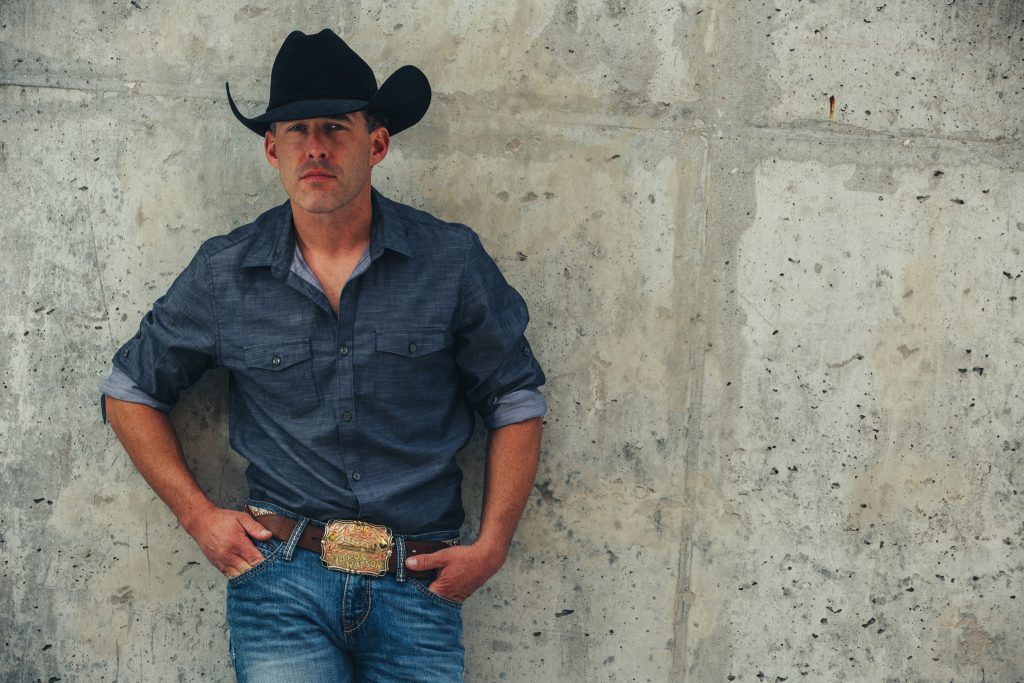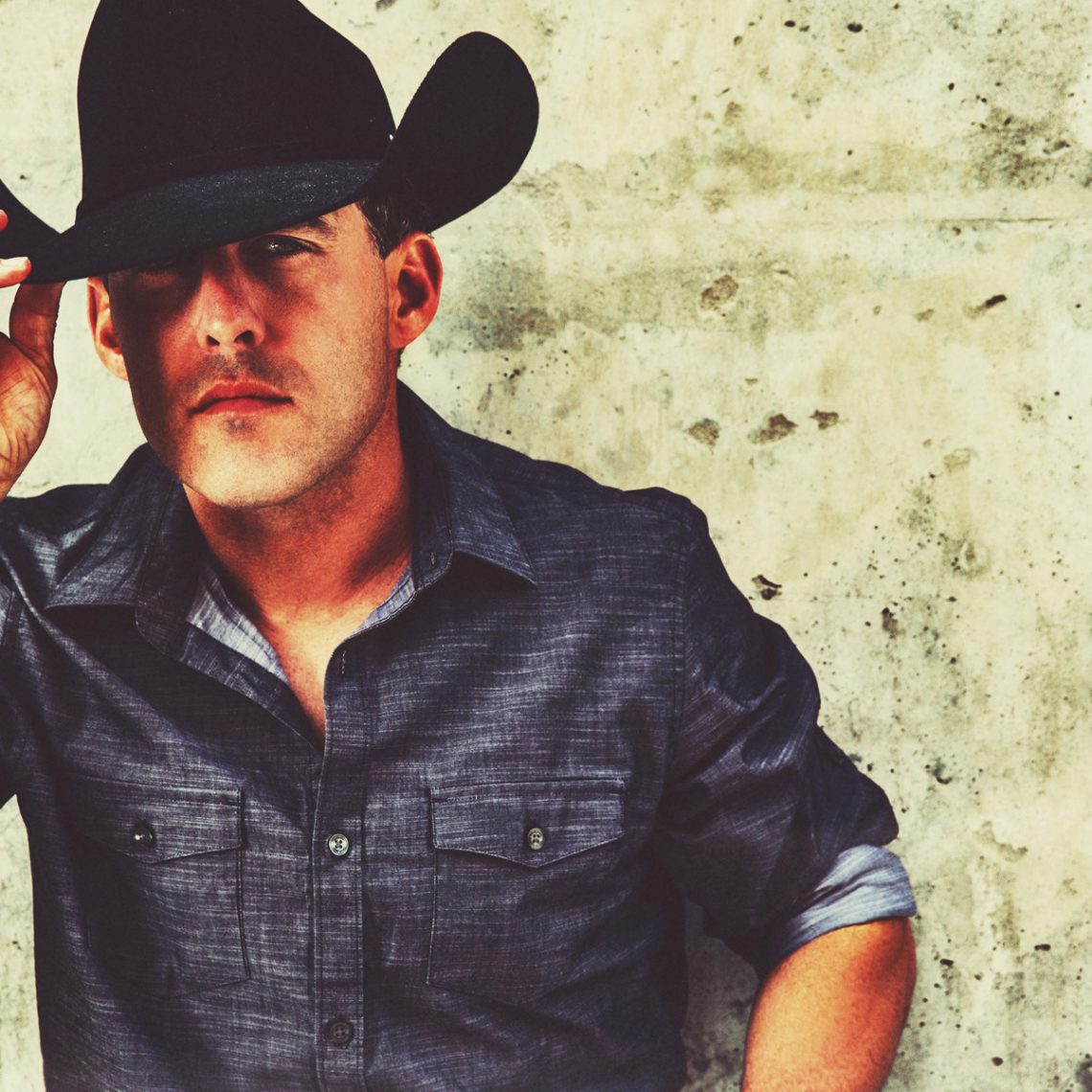By Mike Ethan Messick
In the last decade and a half of independent Texas country music, few artists have been as steadfast and reliable as Aaron Watson. It’s a big part of the Amarillo native’s appeal: a solid, sane, strong and reassuring voice in troubled times, tackling cowboy narratives and matters of the heart with earnestness and easygoing humor.
Arguably more of an heir to the sound and spirit of George Strait than anyone currently burning up the Top 40, Watson is nonetheless a unique example of thriving outside of the Nashville establishment. He doesn’t necessarily fit the outlaw mode — his specialties tend more towards songs of faith, family and commitment than hard-livin’ anthems, and by all accounts he walks the walk — but his approach to the business is as singular, independent, and against-the-grain as anyone making modern country music.
Fortunately for Watson, his family, and his fans, that approach has also been highly successful. Some of his most notable recent victories include the 2015 honor of being the first independent male artist to debut at No. 1 on the Billboard Country Music Albums chart (with The Underdog) and getting booked as the opening-night (March 7) headliner at the Houston Livestock Show & Rodeo (a spot usually reserved for radio-friendly mainstream stars). The upward momentum continues with his much-anticipated new release Vaquero (out Feb. 24), a sprawling 16-song collection of Southwestern storytelling, homespun philosophy and tuneful romance.
So, big accomplishment to talk about: You’re headlining the opening night of this year’s Houston Livestock Show & Rodeo. That’s a huge stage and it’s putting you in league with some really huge acts. How does that feel?
Man, it’s an honor. I’ve tried to explain it to people outside of the state of Texas … to me, it’s like being the guy who gets the green jacket, if you’re into golf. To a Texas boy, getting to play the Houston Rodeo is just everything. Been dreaming of it my whole life, and you know, the last 15 years I’ve been playing those small stages outside the arena. So I’m just so excited, and beyond honored. I think if I’d have gotten this opportunity 20 years ago I would have been excited, but I think where I’m at in my career right now, I really really understand just what a blessing this is. I saw Nolan Ryan’s fifth no-hitter in 1981 in Houston! Got a lot of great memories right around there, and we’re gonna make another one on March 7.
The rodeo crowd holds a pretty special place in your heart and your career anyway, right?
Yeah, absolutely. Those are my people — that’s who I make music for. The cowboys, cowgirls, country folks, people who dig traditional country music … that’s who we’ve been making music for the last 18 years, 13 albums, 2,000 or so shows.
And you’ve got a whole new record’s worth of material to share. What was your mindset through the making of Vaquero? You came into it with a higher profile than ever, but beyond that, what were y’all looking to accomplish with this one?
 A lot of people have asked me if I felt any additional pressure, since The Underdog made a little history by charting No. 1 and being the first No. 1 independent album on the country Billboard charts. And sure, if I said I wasn’t a little nervous, I’d be lying. But what it did, it inspired me, it motivated me to work harder than I’ve ever worked. My passion for songwriting has just become an obsession. With every album for 18 years, we’ve always pushed ourselves to put out a better product, a better album, and I really felt like we’ve done that with Vaquero. I think it’s the best one to date — 16 new songs that I wrote, it’s all heart with a cowboy soul.
A lot of people have asked me if I felt any additional pressure, since The Underdog made a little history by charting No. 1 and being the first No. 1 independent album on the country Billboard charts. And sure, if I said I wasn’t a little nervous, I’d be lying. But what it did, it inspired me, it motivated me to work harder than I’ve ever worked. My passion for songwriting has just become an obsession. With every album for 18 years, we’ve always pushed ourselves to put out a better product, a better album, and I really felt like we’ve done that with Vaquero. I think it’s the best one to date — 16 new songs that I wrote, it’s all heart with a cowboy soul.
And I’ll tell you what’s kind of been my manifesto: Vaquero is a continuation of what we do. We don’t chase phases, stages, or flavors of the month. We stay true to our brand, work hard, and ride a horse named “Hustle.” At the end of the day, we’re gonna focus on what’s gotten us this far, and that’s faith, family, and the fans. My prayer every night hasn’t been, “Dear God, please give me a No. 1 album in country music.” My prayer has been simple: I’ve asked God to give me courage to get up on that stage, let my light shine for Him, and I’ve asked God to help me write songs that are going to bring my fans joy. I want my music to do good things in people’s lives! There’s a lot of negativity out there.
“They Don’t Make ‘Em Like They Used To,” off the new album, is a pretty affectionate song, as well as one that makes some pretty bold statements. Anyone in particular you’d like to dedicate that one to, good or bad?
That song was inspired by me turning on the news. Every day, I see people treating each other poorly. A lot of hate and a lot of anger, and I got to reflecting on my mom and dad and my grandparents, and all the love they’ve always shown to me and everyone else around them. And it kind of made me sad thinking about today’s world, and thinking about my grandparents and how they don’t make ‘em like they used to. But then I started thinking about my own kids, and that kind of inspired me. Inspired me to push myself to live a better life, a life full of love and grace and mercy and understanding and forgiveness. A life like Jesus wants us to live, and I wanted to write this song to inspire a listener to live a better life, too. So that someday our children, and our children’s children, will also look back at our generation and say: They don’t make ‘em like they used to.
You’re operating really effectively outside the country music mainstream, but you’re not exactly an unknown in Nashville. Tell me a little about the installation at the Country Music Hall of Fame — that’s a pretty big deal. Plus you got to play the Grand Ole Opry.
Well, I like Nashville all right. It’s okay, it’s not my favorite place to be, not somewhere I always go willingly. It’s not home. But we’ve got people there who help take care of us — my manager and booking agent are up there. I love playing the Grand Ole Opry, I love the songwriters and the musicians, but I don’t really enjoy the business part in Nashville. Kind of takes the heart and soul out of it for me, personally. I go there as little as possible, to be honest with you, but when I do go there I enjoy getting to see friends and getting to write with great songwriters.
Being a higher-profile artist has come with some challenges as well. You’ve been known to speak up for independent artists in general when others try to dismiss them. The whole “if you’re not on country radio, you don’t exist” argument with Gary Overton from Sony Nashville is still pretty fresh in the memory.
I’m proud to be an independent artist. And not too much gets me fired up, but when somebody assumes we’re independent because we’re not talented enough or good enough to get signed to a label, that gets me a little fired up! For someone to say that someone “doesn’t exist,” that’s just a silly comment. There’s a lot of great musicians that pour their heart and soul into their music, and they’ve got fan bases. There are more independent artists out there in the world, working hard and making livings for their families, than there are artists who are signed to major labels. I guess it comes down to, how do you measure your success? If you say you have to pack a stadium like Taylor Swift, well, those are some pretty perhaps-unrealistic expectations. But from an independent standpoint, if you’re willing to work hard and play live shows and take care of your fans you can slowly — little by little, year after year, one honky-tonk at a time — grow a fan base that will take care of you for the rest of your career. When [Overton] made that comment, he didn’t realize there’d be a hard-headed West Texas boy in his neck of the woods that week. Who doesn’t get mainstream radio play, but also happened to have the No. 1 record in country music, at least for that week. I’m absolutely honored if I’m considered an ambassador of Texas music or independent music. No one — and I mean no one — has the right to discourage someone from chasing their dream.
Has there been anyone in particular that you’ve looked to as an example, career-wise? Despite being a Texas-based country singer, you don’t necessarily fit the Robert Earl Keen or Pat Green mold.
I think if you were going to try to figure out my ingredients, you’d have to take a little bit of George Strait, a little bit of Waylon, a little Willie, a little Chris LeDoux … but definitely there’s some Robert Earl Keen. On the new album there’s a song, “Clear Isabel,” inspired by his kind of writing. I love the Texas singer-songwriters, the Keens and the Guy Clarks and the Townes Van Zandts, those are the greatest songwriters. I love George Strait, but when I’m on my own it’s those songwriters that really intrigue me, and I’m sure George himself feels the same way.
I noticed more of a thread through the new album, more Tex-Mex songwriting and longer narratives.
Yeah, absolutely. When The Underdog hit, we had some industry folks telling me that if we were going to capitalize on it, we were going to have to get away from our Texas roots. That kind of bothered me. So on this one, I wanted to name it Vaquero, because those guys were the original cowboys. I’m all about selling out shows when we can, but I’m not selling out on my music or the fans.

Don’t mess with this independent Texan: “When somebody assumes we’re independent because we’re not talented enough or good enough to get signed to a label, that gets me a little fired up!” (Photo by Joseph Llanes)
Your name is still fairly new to a lot of casual fans and people that may not realize you’ve been at it for over a decade and a half at this point. What were those earliest years like?
Living and learning. Trying to perfect my craft, watching these other Texas bands we got to open for. Learning from Robert Earl Keen, Gary P. Nunn, Kevin Fowler, Pat Green, Roger Creager. I was raised on Willie and Waylon, Beatles and Rolling Stones — my dad was always playing vinyl records, and my mom was always encouraging me to sing in church. The music’s always been a part of my life. And you know, it’s funny, 18 years and 13 albums and folks still call me “up and coming.” But my response to that is this: I’m flattered! After nearly 20 years, folks could still consider me new and fresh. I really feel like we’re just catching our stride.
One memorable number off of The Underdog was “Fence Post,” which kind of rebukes the tendency of the Nashville music business to try to change the artists they should be trying to nurture. I get the feeling the song’s not entirely fictional. What would you say is some of the worst career advice you’ve gotten so far?
Oh, that song is my story. I’ve had people tell me that I needed to pack my bags and move to Nashville if I ever wanted to make it in country music. I’ve had guys at record labels tell me that I needed to lose the cowboy hat and buckle and boots. I would tell people who wanted to get involved in country music, you need to be true to yourself! Be true to your music. If you’re fake, it’s only going to last so long. The fans will figure that out quick.
You’re definitely in a position to give some good advice. What would you tell a young singer-songwriter trying to make a name for him or herself?
Write your songs. No one’s ever sent me a No. 1 hit song. You gotta be willing to write your own, play night after night, and if you’re in it for fame and fortune then it’s the wrong reasons. Faith, family, and fans, and give God all the glory. That’s gotten us this far and I’m going to stick to it. And after the show’s over, I’ll get down at the merchandise booth and hang out with the fans until they shut the place down. I’ll get up early every morning and write new songs, the best ones that I can write. We give it 110%, all the time. We owe it to ourselves to give it our best effort, at everything we do. I mean, you’ve got but one life to live!
You’ve also been very outspoken and positive about your faith. How does that influence your approach to both the art and the business end of it?
Well, it’s a constant struggle. I tell people, I’m not a Christian because I’m perfect. I’m a Christian because I’m probably one of the most messed-up individuals in the world, and that’s why I need Jesus. Jesus came for the sinners. It changes my approach in the business … there’s a lot of things I could do that would be at least borderline dishonest that might make me a lot more money, but as a Christian that’s a decision I just can’t make, a thing I just can’t live with. We’ve turned down beer sponsorships, even though I don’t have anything against beer. But there’s a lot of young boys that follow me on Instagram or whatever, young girls too, so I need to push myself to set a good example. Plus also my mom made me promise 20 years ago that I’d never get a beer sponsorship. So, you can’t lie to your mama.
And now that you’ve had a chance to see a number of dreams come true, what keeps you hungry? What are some of the big things you feel like you’ve got left to accomplish?
You know … my goals are simple. I just want to be able to keep paying off my wife’s credit card bill every month. [Laughs] I don’t have any type of goals … I never thought I’d make it this far, honestly. So I’m mostly just thankful. So often, people keep looking two steps ahead, and that keeps them from appreciating the moment. So I’m really just trying to soak all this in. I want to put on such a good show at the Houston Rodeo that they ask me back next year. I could say, “Man, I’m nervous that this new record won’t meet everyone’s expectations.” Or I could say that I’m excited that folks are talking about me! I put out 11 other records that didn’t chart No. 1. If Vaquero doesn’t chart No. 1, I’ll be all right. I’m gonna wake up the next morning, I’m gonna make some coffee, and I’m gonna write songs and love my wife and my kids.






No Comment